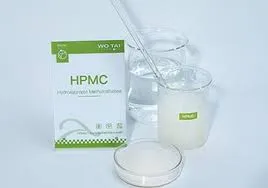
ก.ย. . 02, 2024 01:06 Back to list
Hydroxy Methyl Cellulose
Understanding Hydroxy Methyl Cellulose A Versatile Polymer
Hydroxy Methyl Cellulose (HMC) is a cellulose derivative that has garnered significant attention for its versatile applications in various industries. This water-soluble polymer is primarily derived from natural cellulose through a series of chemical modifications. Its unique properties, including viscosity, binding capabilities, and film-forming ability, render it an invaluable ingredient in products ranging from pharmaceuticals to construction materials.
Understanding Hydroxy Methyl Cellulose A Versatile Polymer
In addition to its pharmaceutical uses, Hydroxy Methyl Cellulose plays a crucial role in the food industry. It is commonly utilized as a food additive, serving as a thickener, emulsifier, and stabilizer in various food products. HMC can improve the texture and mouthfeel of foods, contributing to a more enjoyable eating experience. As consumers increasingly seek healthier options, HMC's ability to enhance the quality of low-fat and low-calorie products makes it a valuable ingredient for food manufacturers aiming to meet market demands.
hydroxy methyl cellulose

Apart from food and pharmaceuticals, Hydroxy Methyl Cellulose has found extensive applications in the construction industry. It is often used as a thickening agent in cement-based products, enhancing workability and water retention during the application process. HMC improves the adhesion of mortars and plasters, ensuring that they perform effectively in various environmental conditions. Additionally, it helps to reduce shrinkage and cracking, contributing to the longevity of construction materials.
HMC's versatility does not stop here; it has also made its way into the cosmetics and personal care sectors. As an ingredient in lotions, creams, and gels, Hydroxy Methyl Cellulose provides a smooth texture and a pleasant feel on the skin. Its film-forming properties can enhance the longevity of cosmetic applications, ensuring that makeup and skincare products remain effective throughout the day.
Moreover, HMC is environmentally friendly, as it is derived from sustainable natural resources. Its biodegradability makes it an appealing alternative to synthetic polymers in various applications. As industries increasingly focus on sustainability, Hydroxy Methyl Cellulose offers a viable solution that meets both performance and environmental criteria.
In conclusion, Hydroxy Methyl Cellulose is a multifunctional polymer that plays a vital role in numerous industries, including pharmaceuticals, food, construction, and cosmetics. Its unique properties and compatibility with various formulations highlight its importance as a functional ingredient. As research and technology continue to evolve, the potential applications of HMC are likely to expand, paving the way for innovative solutions in the coming years.
-
Unlocking the Benefits of HPMC Products: A Gateway to Versatile Applications
NewsAug.07,2025
-
Tile Bonding Cellulose: The Key to Superior Adhesion and Durability
NewsAug.07,2025
-
Hydroxypropyl Methylcellulose Powder: The Versatile Component in Modern Pharmaceuticals
NewsAug.07,2025
-
Hydroxyethyl Cellulose: The Versatile Solution for Various Industries
NewsAug.07,2025
-
Hydroxyethyl Cellulose (HEC): The Versatile Polymer for Various Applications
NewsAug.07,2025
-
The Ultimate Guide to Mortar Bonding Agent
NewsAug.06,2025







